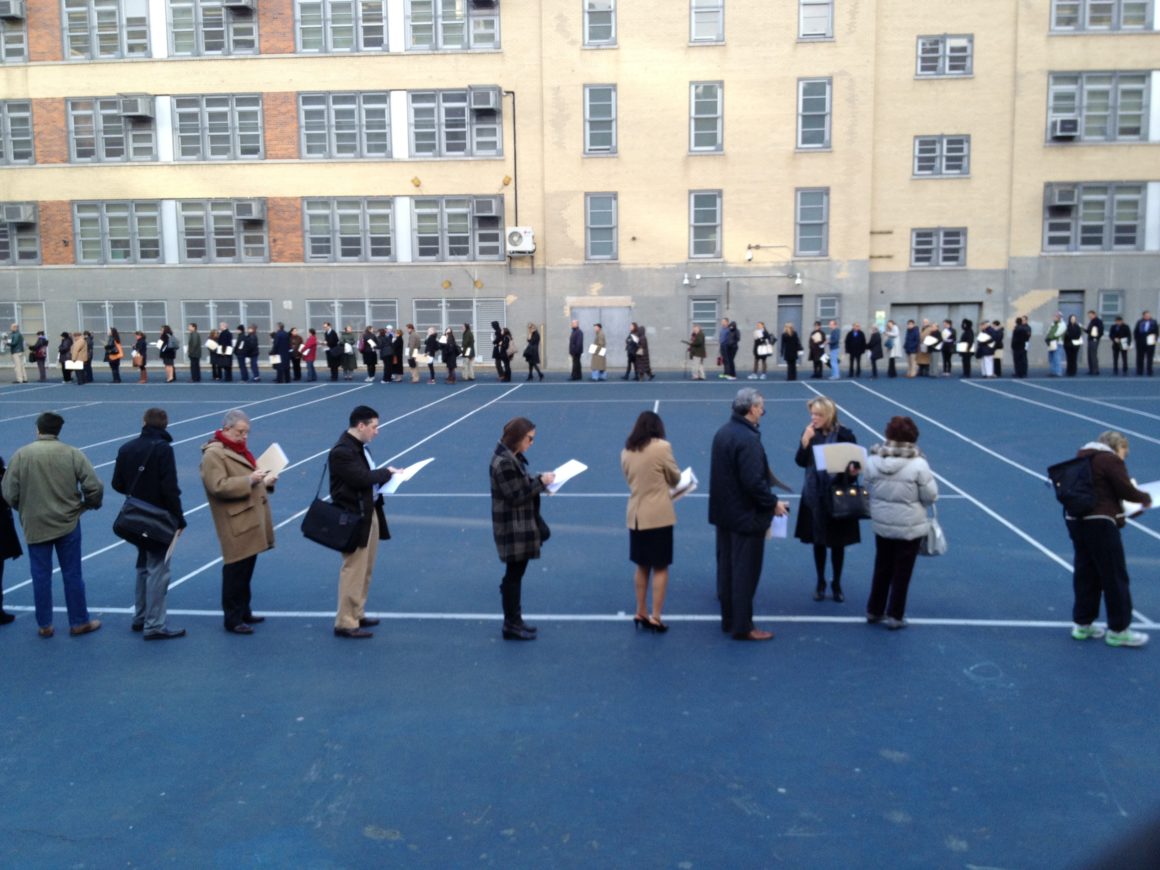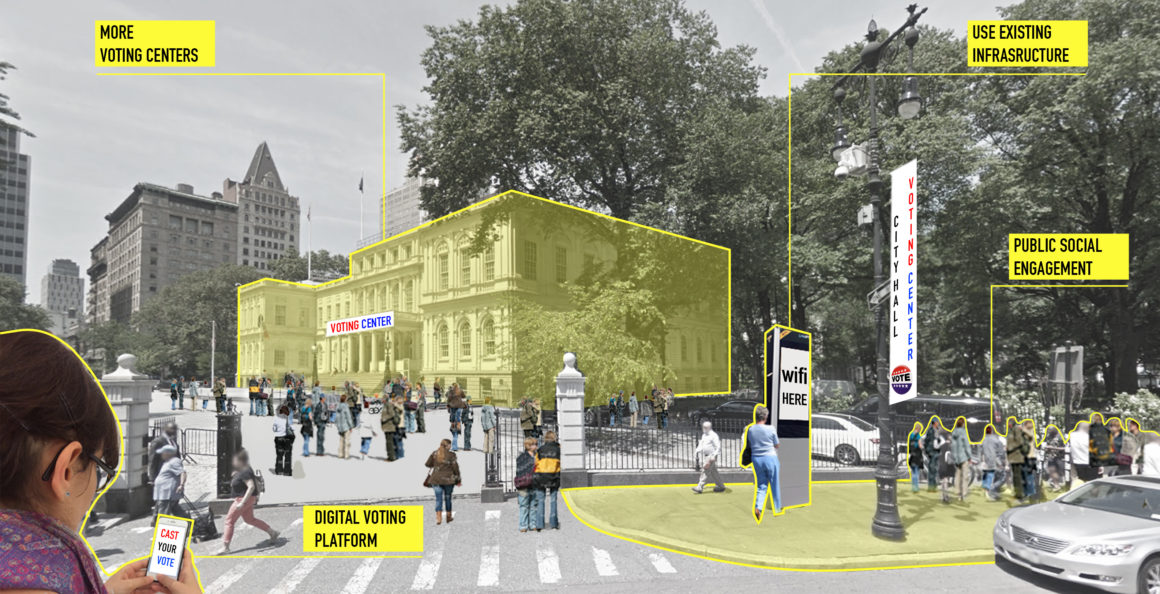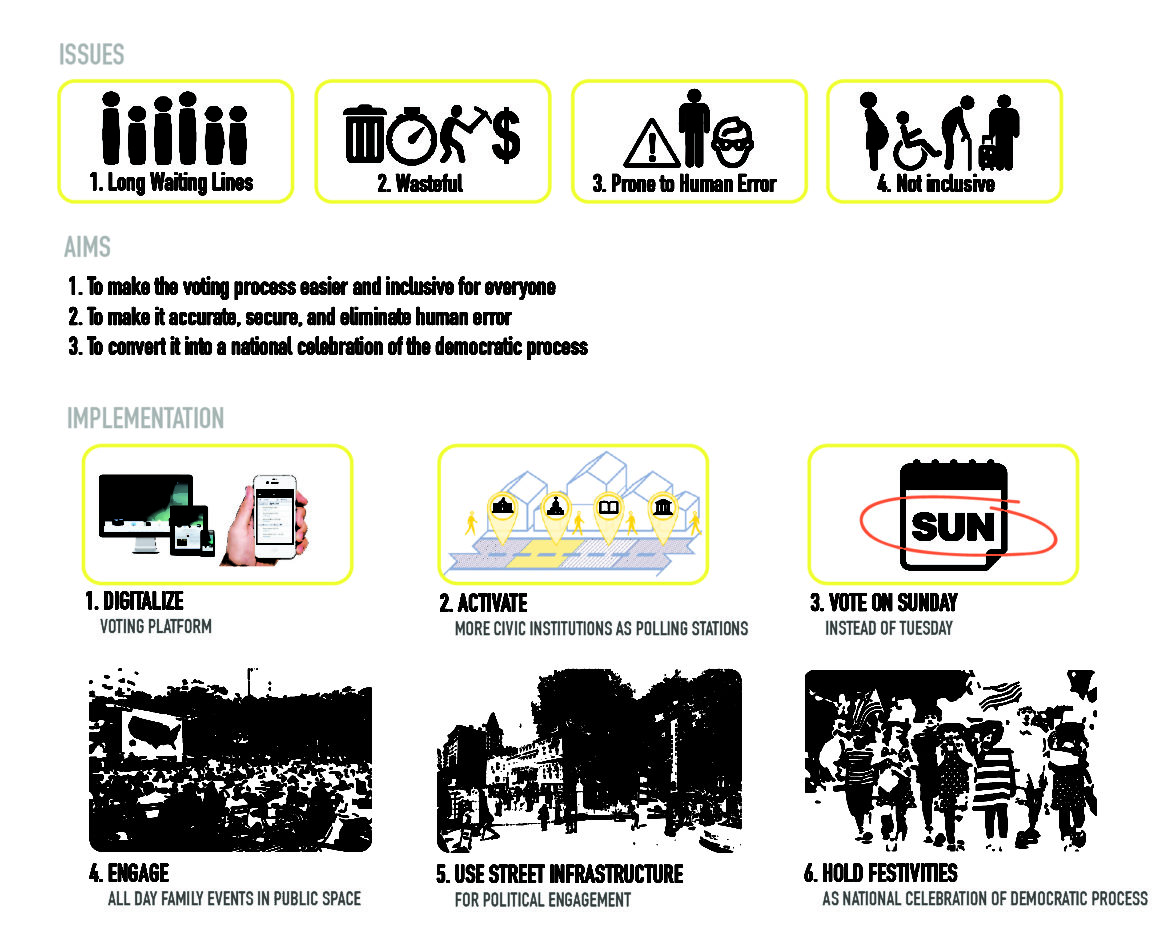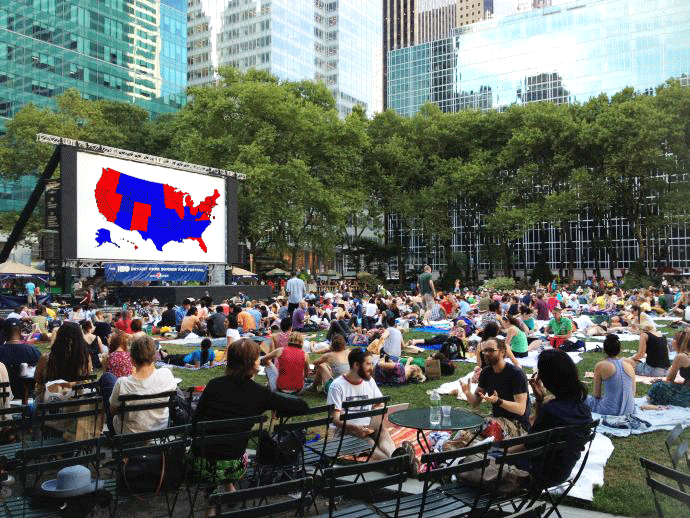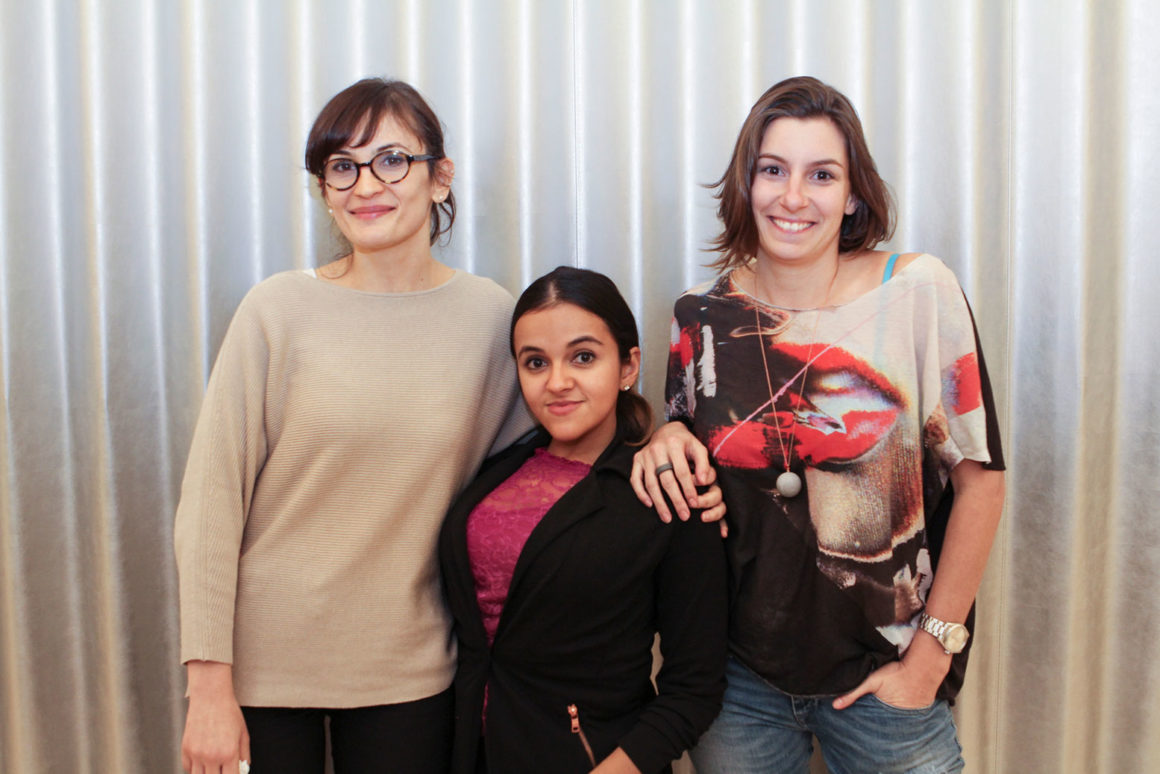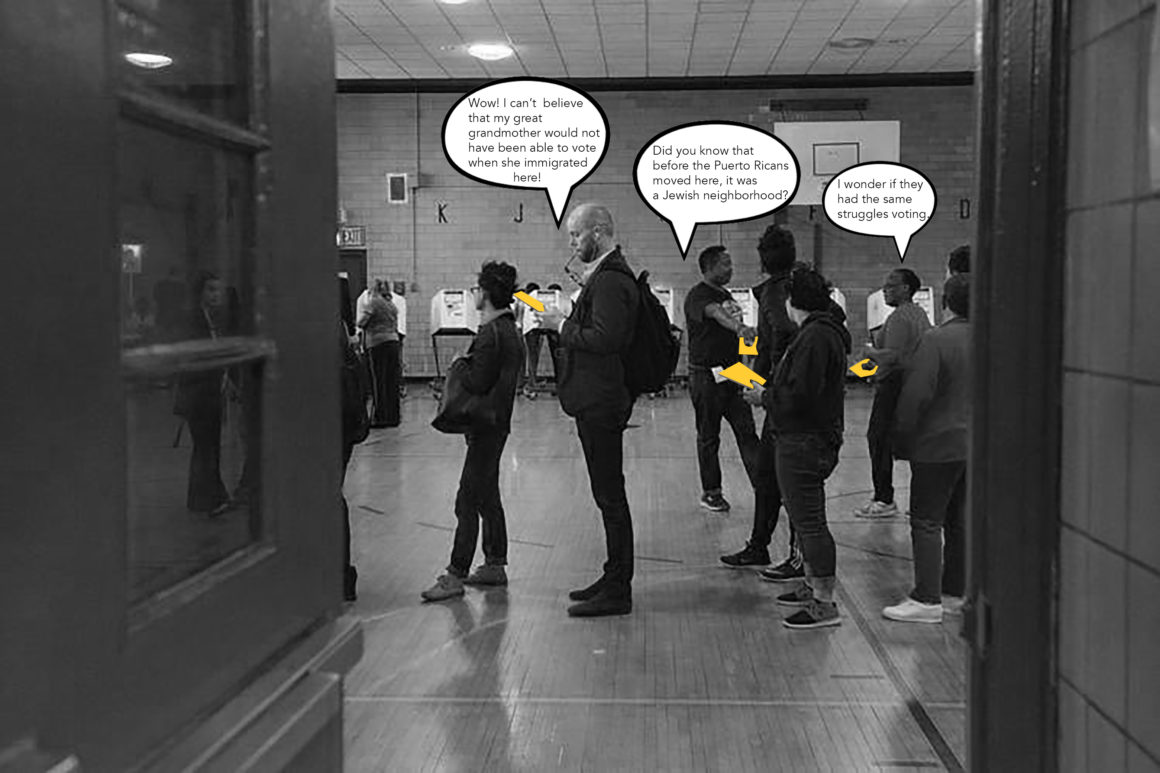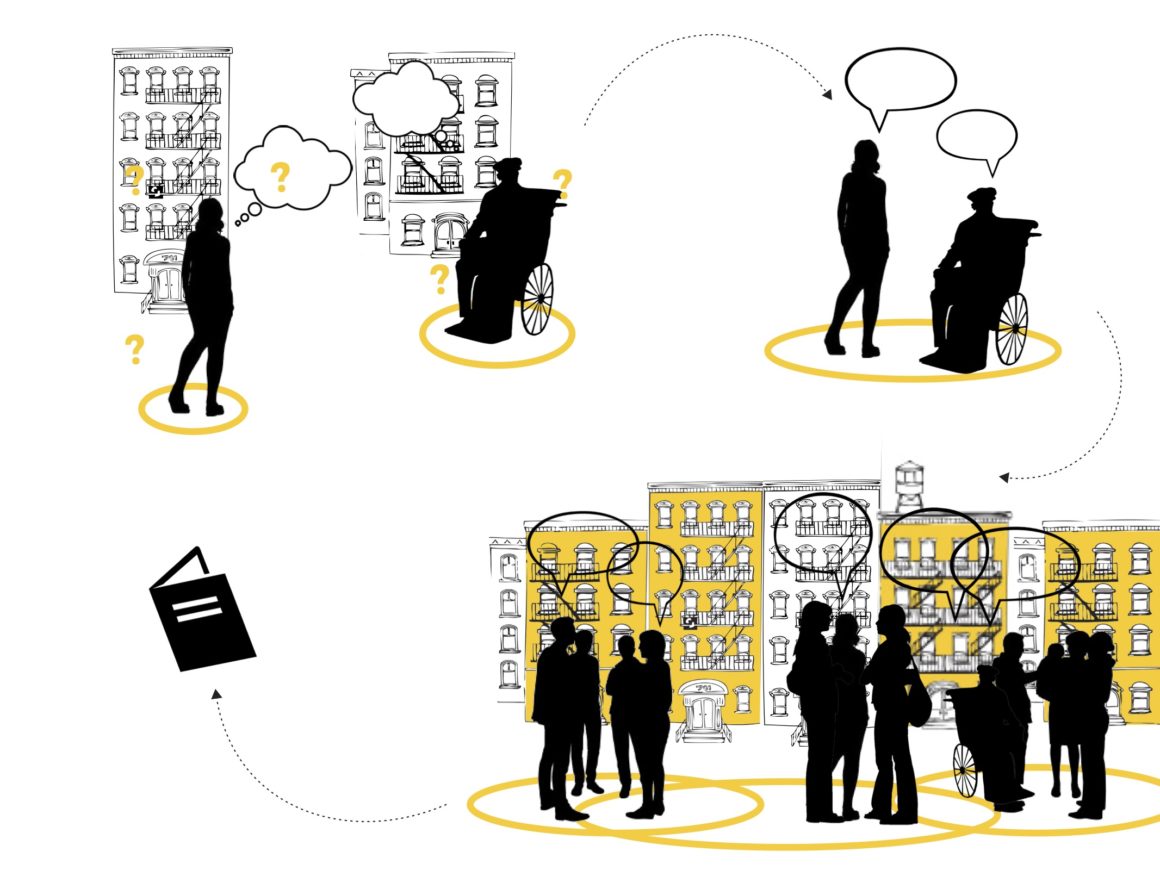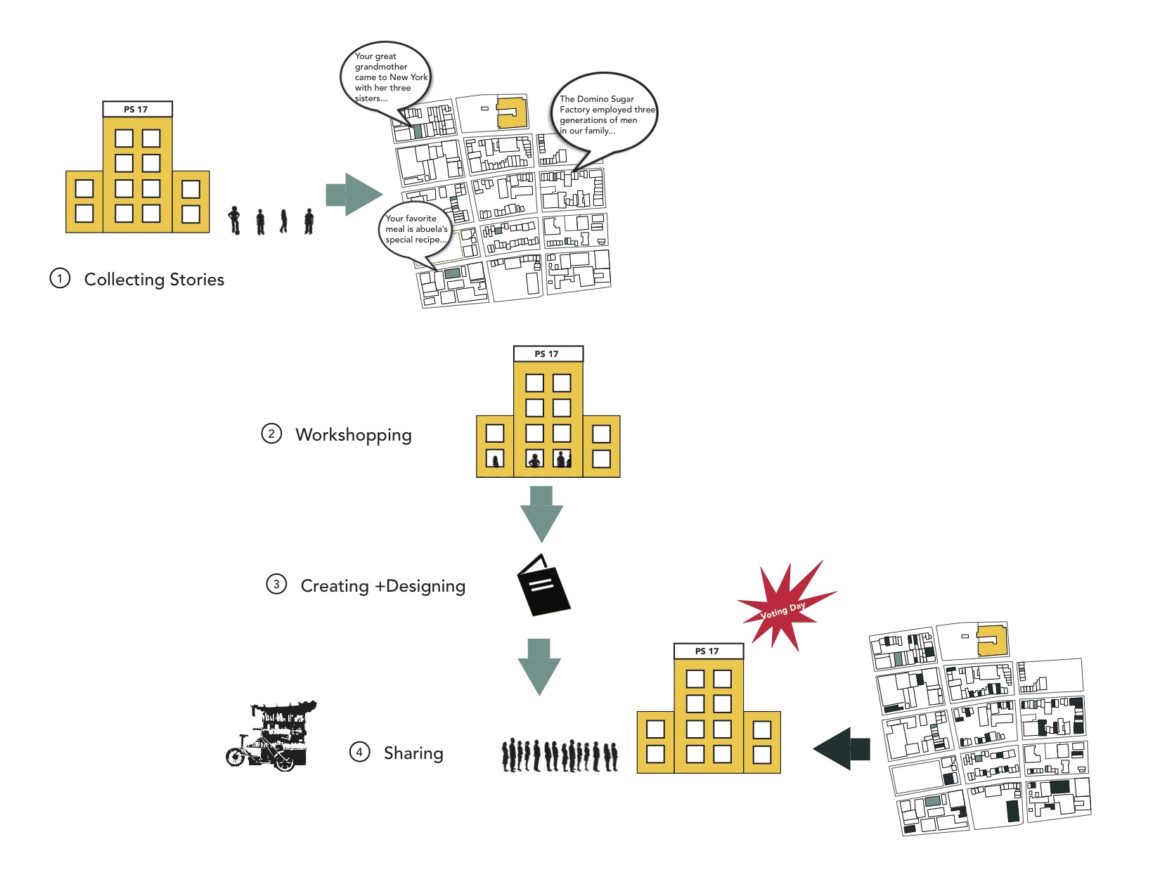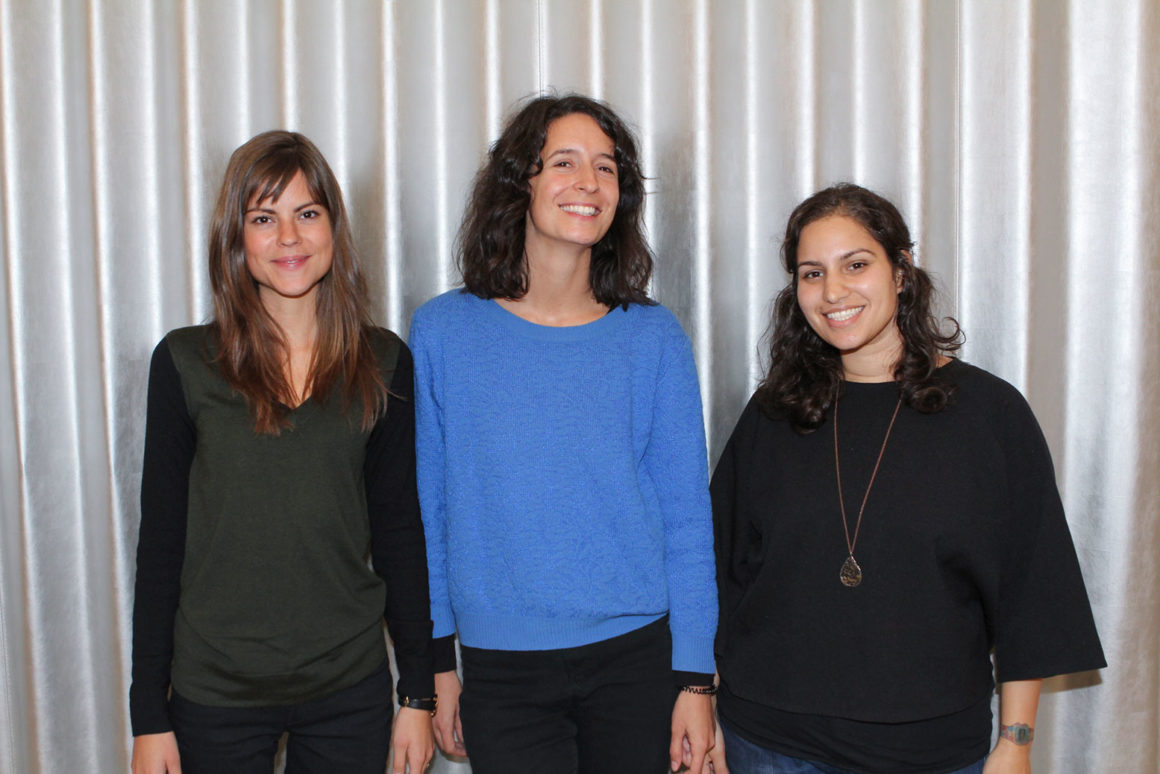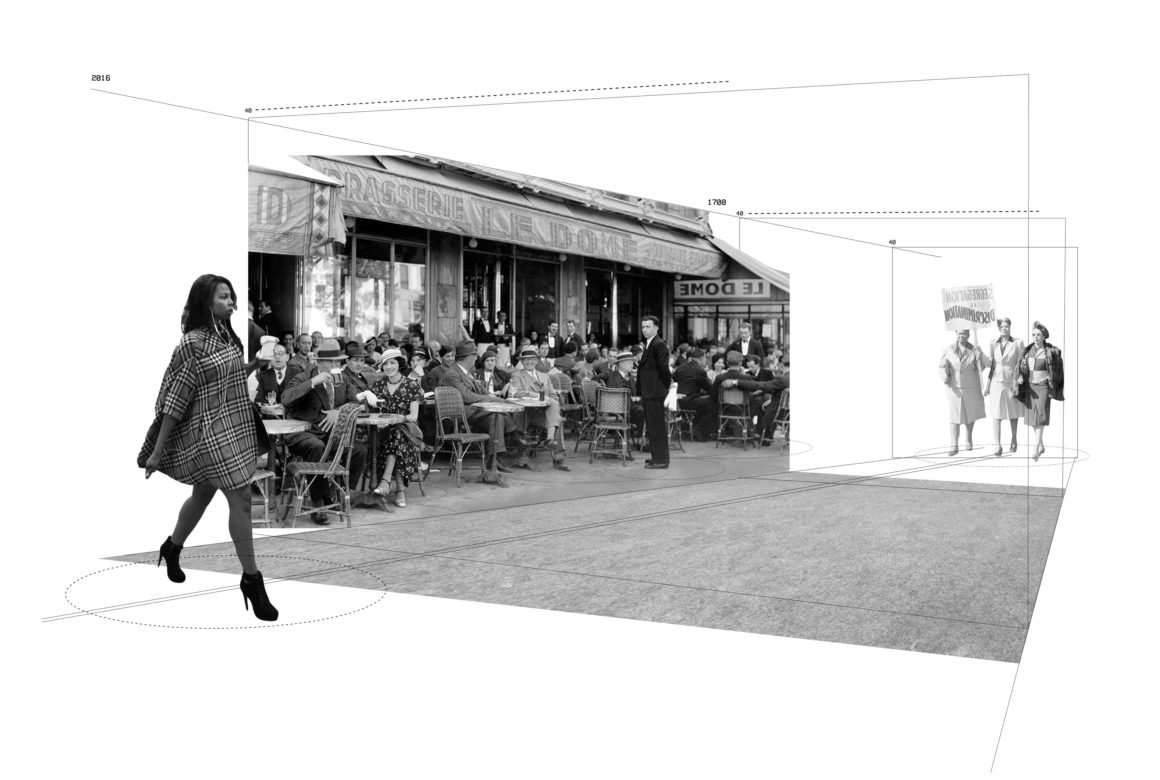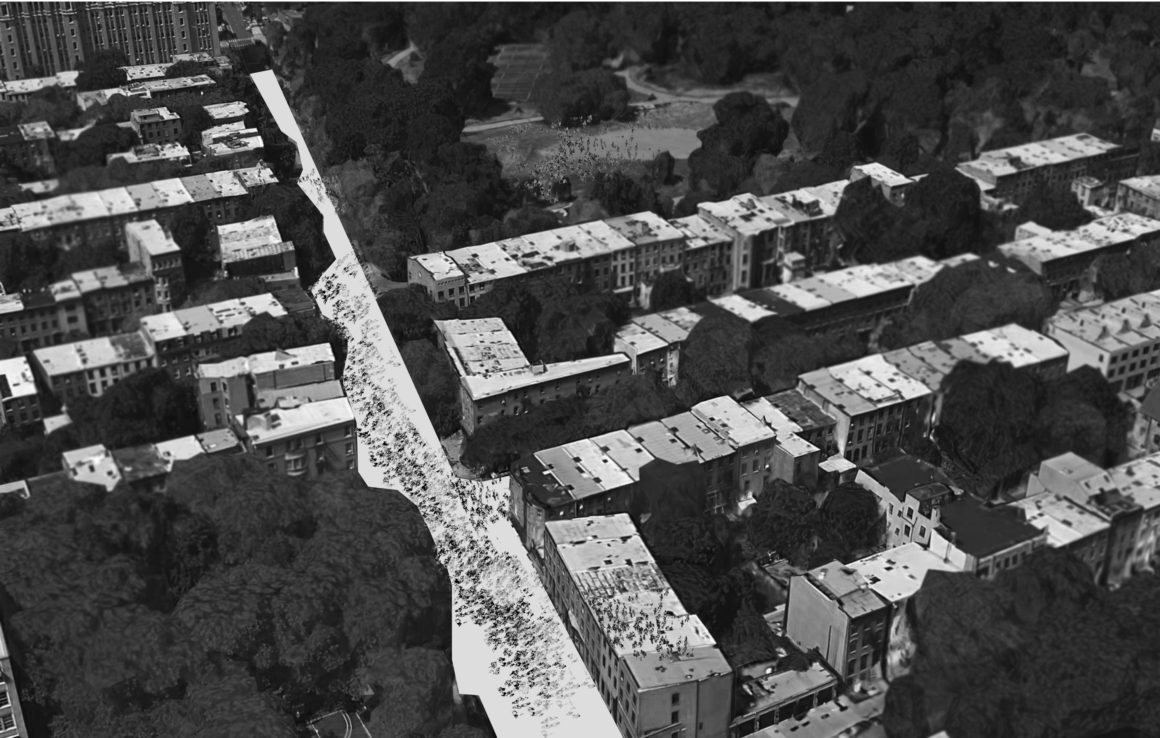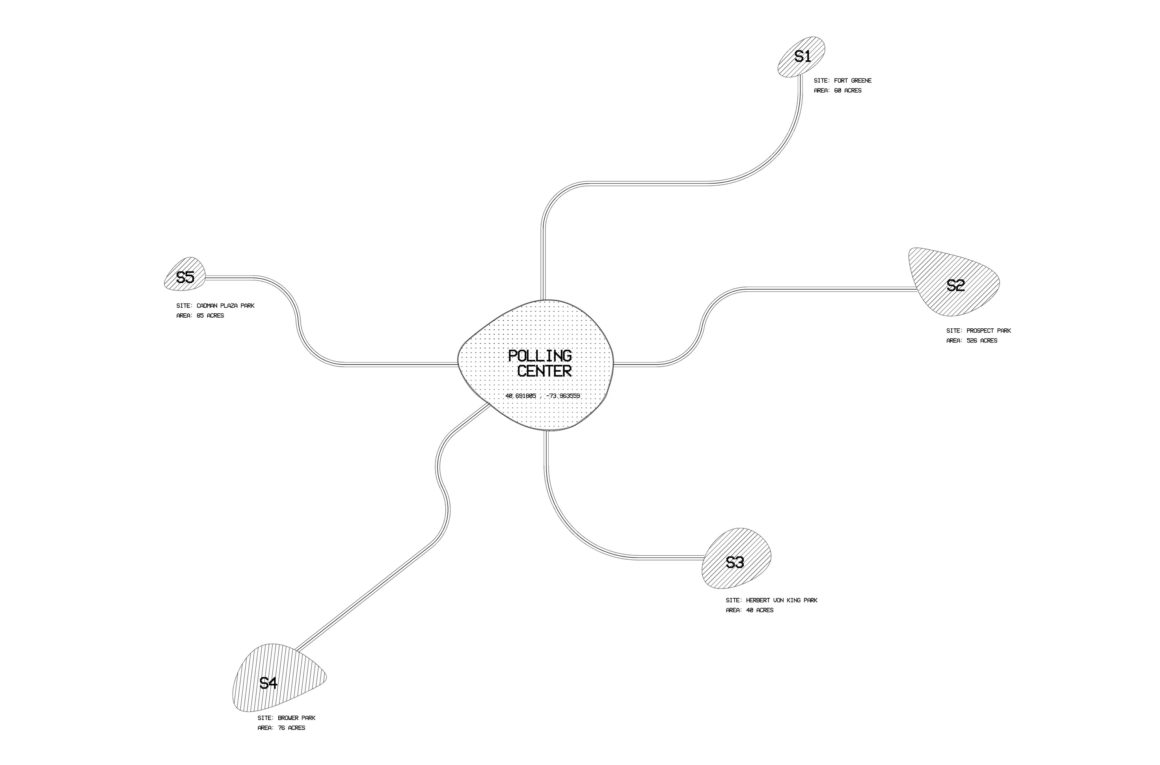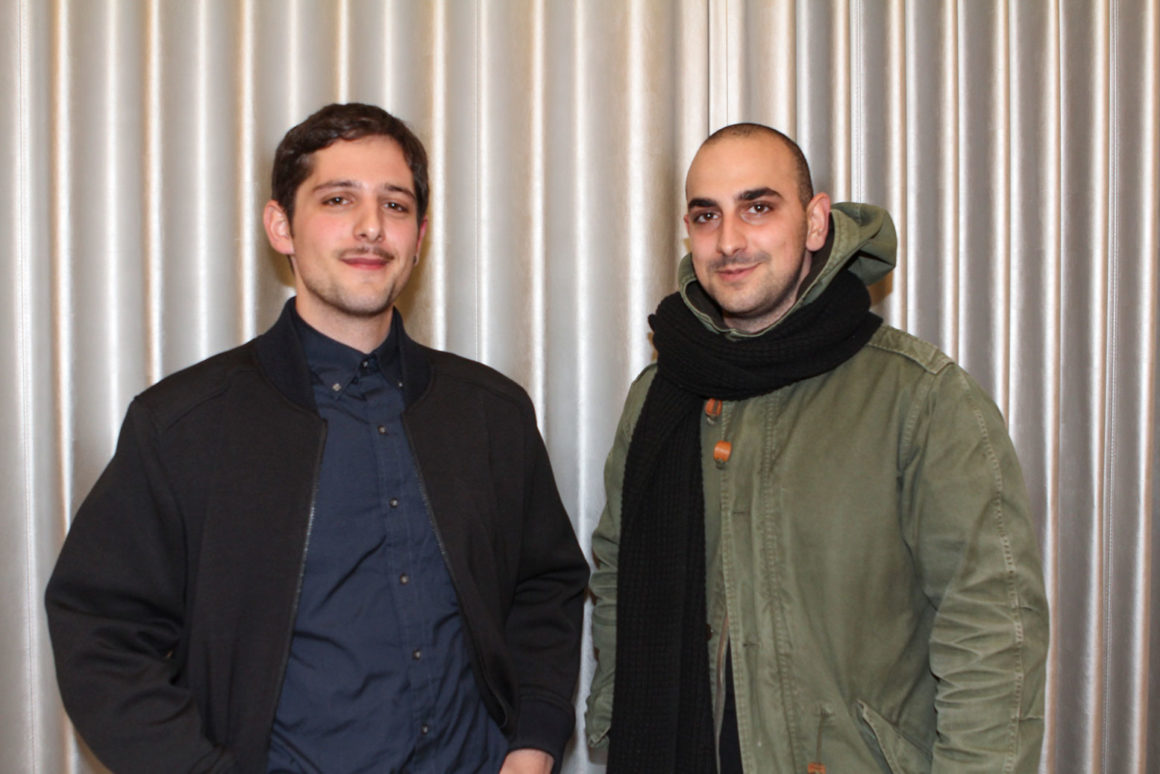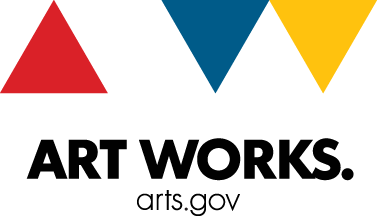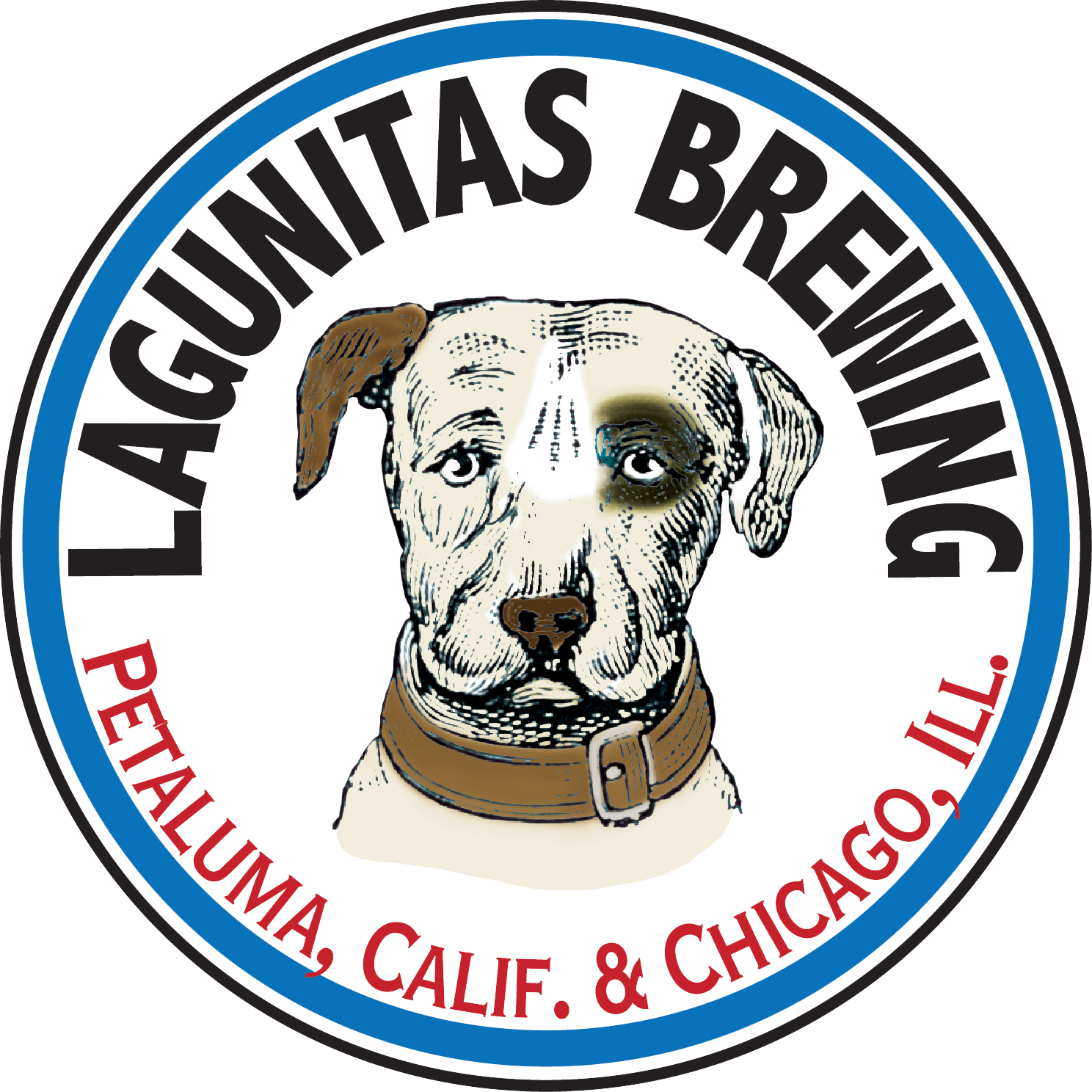As the nation prepared for an extraordinarily contested election season, the cornerstone of democracy—the act of voting—was poised for a dramatic reframing through design.
Part of the Van Alen Fall Festival, Mandate, and Archtober, this fast-paced, one-day design competition invited interdisciplinary teams to consider how the voter experience in cities can be reimagined to be more equitable, accessible, and engaging for all citizens.
Following a workshop period at Van Alen Institute among finalist teams, community members were invited to attend the presentation of proposals and ask questions. A jury of planning and election experts judged the entries and announced a winner at the conclusion of the event.
The winning team shared a $1,000 prize and worked with Van Alen to refine their proposals.
Winning proposal
Voting at Your Fingertips: A National Celebration of the Democratic Process
Team: Racha Daher, Architect, Urban Designer, Hive Public Space; Alexandra Gonzales; Elena Kapompasopoulou, Project Designer, SLCE Architects
The current voting process is inefficient, strenuous, wasteful, non-inclusive, and prone to human error. This proposal aims to change the way the voting process works, so that it is easier and inclusive, and is accurate, secure and transparent. It aims to change the mindset of the voting experience so that it becomes a national celebration of the democratic process, strengthening social and community ties.
To do this several strategies are to be implemented:
1. Digitalize the voting platform to facilitate the democratic voting experience (multi-step identity verification: SSN number, fingerprints, photo).
2. Increase number of public institutions that serve as polling stations: (churches, post offices, libraries, city halls, schools).
3. Change the voting day to Sunday to allow all-day family events.
4. Transform parks and public spaces into event areas, re-engaging in activities, while broadcasting voting results to promote transparency.
5. Utilize street infrastructure for political engagement.
6. Hold national festivities to celebrate the democratic process.
Finalist
In Between the Lines
Team: Larissa Begault, Architect and Urbanist, in.site collaborative, part-time faculty, Parsons School of Design, the New School; Julia Borowicz, Urbanist and Geographer, in.site collaborative, part-time faculty, Parsons School of Design, the New School
Most voting in NYC takes place in public schools, which provides an opportunity for civic engagement to occur within these educational institutions. Our proposal offers a curriculum of collective storytelling and cultural archiving. Given the current political rhetoric around national identity we need to reflect on diversity. This curriculum engages parents through excavating their histories while empowering children as the future generation of voters. Students collect their family history, highlighting diverse heritages across the US. Once workshopped, the stories become an interactive artifact distributed to voters in line. Showcasing their plurality allows neighbors to find common ground through unexpected conversations around identity and difference. Addressing these themes bridges challenges around belonging and citizenship. This proposal offers an occasion to reflect on what unites us.
Finalist
Re-thinking Urban Elections
Team: Vahhab Aboonour, student, Pratt Institute; George Dimos, writer, Emerald Isle Immigration Center
Our proposal examines the importance of public spaces, like parks, plazas or college campuses, as democratic archetypes promoting social interaction and political education. We are re-thinking the poll site, incorporating elements from the ancient Gree k agora and the Parisian café scene, as a place where political conversation can spontaneously occur. We propose that Election Day becomes a national holiday that both public and private organizations respect. Voters are therefore given more time to travel to their poll sites and share views with their communities. Furthermore, the private sector can actively participate in the electoral process, with college campuses serving as poll sites, and students working at the polls, getting paid through their work study awards. Voting then becomes an educational and celebratory public event.
Competition Details
Submit a maximum 200-word concept and names and affiliations of team members by midnight EDT on October 24. On October 26, a selection of five-seven finalist teams will be invited to participate in the competition on October 29th, 10:00am at Van Alen Institute.
10:00am – 4:00pm: Teams will work through a set of prompts, refining a proposal to be presented in a format that will be revealed at the beginning of the workshop. Lunch will be provided.
4:00pm – 5:30pm: Teams will present their proposals and answer questions before a jury and open audience.
5:30pm – 6:15pm: As the jury privately determines the best proposal, attendees are invited to enjoy a drink and discuss ideas with the competition teams.
6:15pm: The winning team will be announced. The team will be awarded a $1,000 cash prize and work closely with Van Alen to further refine their proposal.
This event was designated for AIA CES (3 LU | HSW)
Preliminary Questions:
- How can poll centers be more visible and welcoming in cities and neighborhoods, and incentivize voter turnout?
- How can the design experience of a poll center increase access for people of varying abilities?
- How can polling centers be repositioned as mobile or engaged with the outdoor streetscape?
- How can technology enhance transparency in the voting process (without taking the form of an app)?
- How can the voter experience be redesigned to bring neighbors together for unexpected conversations that enliven our democratic society?
Evaluation Criteria
Jurors will evaluate proposals based on the following criteria:
- It proposes feasible, user-centered solutions grounded in a physical design (not simply an app) that resourcefully address the efficiency, equity, and transparency of voting polls in New York City, within a set budget.
- It clearly communicates key existing conditions of voting polls, the demographics the proposal addresses, today’s political context, and how the proposal will achieve its stated goals.
- It has the potential to enrich a wide audience’s understanding of cities, how the democratic process functions within them — and is compelling for official political agencies, such as the NYC Board of Elections.
- It aims to facilitate community-wide conversations on urban political processes.
- It demonstrates interdisciplinary thinking and collaboration among team members from different fields of expertise.
If you have questions, please contact Steven Thomson, Van Alen Institute at sthomson@vanalen.org.
Jury
Rebecca Amato, associate director, Urban Democracy Lab, NYU
Caron Atlas, executive director, Arts & Democracy
Wellington Chen, executive director, Chinatown Partnership
Gonzalo Cruz, principal, AECOM
David van der Leer, executive director, Van Alen Institute
Zak Klauck, director, WAX Studios
Eligibility
To participate, you must be part of a multidisciplinary team of up to four members; individuals may not participate alone. Your team must include at least one professional from architecture or urban planning. This competition is open to both professionals and students. Members of the team must be available to be present at Van Alen Institute in New York City on October 29th.
Enter
Entry fee: There is no entry fee for entering Open Poll. Number of entries: Individuals may participate on only one team. Each team is permitted to enter only one submission.
Submission of concepts: Teams must submit a maximum 200-word concept by midnight EDT on October 24. Finalists will be notified on October 26.
Your entry must include a written concept description of your proposal. Clearly state your proposed solution(s), the name(s), contact information, title, and affiliation of the team members. Accompanying illustrations of your concept are accepted but not required. Team members have the option to upload an accompanying portfolio of past work.
All entries must be in English. Proposals must be uploaded using the submission link on vanalen.org by midnight EDT on October 24. Entrants will receive a confirmation that the files have been uploaded and should retain this confirmation for reference. Failure to comply with any of these submission requirements will result in immediate disqualification.
Supporters
The Open Poll flash competition is presented in concert with Archtober and the Van Alen Fall Festival, Mandate. This series is made possible through our Program Leadership Council, co-chaired by Andy Bernheimer (Bernheimer Architecture), Katherine Chia (Desai Chia Architecture), Koray Duman (Buro Koray Duman), Mark Gardner (Jaklitsch / Gardner Architects), Sara Grant (Murphy Burnham and Buttrick Architects), Stephan Jaklitsch (Jaklitsch / Gardner Architects), Amy Lau (Amy Lau Design), and Joel Sanders (Joel Sanders Architect).
Thank you to council members Elliot Berkowitz, Matthew Bremer, Jerry Caldari, Demetrios Comodromos, Powell Draper, Dunia Dupont, Kevin Erickson, Lisa Frazar, Chris Hughes, Scott Hughes, Julie Iovine, Hauke Jungjohann, Andrew Kotchen, Drew Lang, Gareth Mahon, Michael Manfredi, Philippe Meyersohn, Matthew Moss, Ted Porter, Juergen Riehm, Jane Stageberg, Carol Swedlow, Michael Szivos, Marion Weiss, and Stephen Yablon.
The programs are supported by the New York State Council on the Arts with the support of Governor Andrew M. Cuomo and the New York State Legislature, and, in part, by public funds from the New York City Department of Cultural Affairs in partnership with the City Council.
